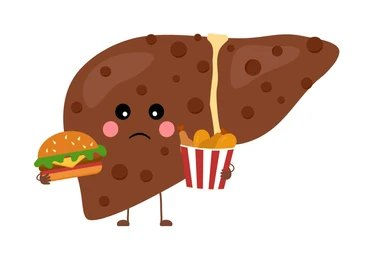PCOD vs PCOS: What’s the Difference? Do They Mean the Same Thing?
- Bhoomi gupta
- Apr 29, 2025
- 2 min read
Updated: Aug 17, 2025
“Wait, are PCOD and PCOS the same thing?”
This question first hit me five years ago when I was diagnosed with PCOD. I returned from my gynaecologist and casually mentioned it over lunch with my friends. Most of us just blinked—confused and misinformed.
One person said, “Isn’t that called PCOS?”Another chimed in, “Oh, just lose some weight, it’ll go away.”
That conversation stuck with me.
So, I dug deeper—and I realized how much confusion surrounds the terms PCOD vs PCOS. While they may sound interchangeable, they are not exactly the same. If you or someone you know is struggling with hormonal issues, this post might help clear the air.

What is PCOD (Polycystic Ovarian Disease)?
PCOD is a common hormonal condition where the ovaries produce immature or partially mature eggs, which eventually turn into cysts (little sacs filled with liquid). This also leads to the ovaries swelling and becoming enlarged. Generally, the ovaries release a limited amount of androgens (male hormones) during the cycle - but in this case, the ovaries will start producing androgens in excess, which leads to:
Irregular periods
Oily skin and acne
Weight gain, especially around the belly
Hair thinning or male-pattern hair growth
In some cases, difficulty in conceiving or infertility
What is PCOS (Polycystic Ovarian Syndrome)?
PCOS, on the other hand, is an endocrine (hormonal) disorder. It causes the body to produce higher levels of androgens (male hormones), which interfere with egg development and ovulation. Unlike PCOD, where eggs are released, in PCOS they often remain trapped inside the ovaries, forming multiple cysts.
PCOS also induces metabolic syndrome, which increases the risk of heart disease, strokes, and diabetes. It may also cause sleep apnea, which affects the body’s ability to breathe while you are sleeping - this means sudden pauses in breathing or inability to breathe while asleep, which in turn leads to a highly disturbed sleep cycle. As no ovulation is taking place, the uterine lining (lining of the uterus) builds up every month, which can also increase the chances of endometrial cancer. PCOS has a lot of symptoms common with PCOD like:
Severe acne
Irregular or absent periods
Increased facial/body hair
Obesity
Fertility issues
Risk of type 2 diabetes, heart disease, and endometrial cancer
So, What’s the Difference Between PCOD and PCOS?
Factor | PCOD | PCOS |
Nature | Hormonal imbalance | Hormonal + metabolic disorder |
Severity | Milder, manageable | More severe |
Commonness | More common | Less common |
Fertility | Can conceive naturally | Might require treatment |
Management | Lifestyle changes | Medication + lifestyle changes |
The Bottom Line
First and foremost, PCOS is usually considered a more serious condition.
Along with that, PCOD is also far more common, at least in women. About one-third of all menstruating women around the globe have PCOD. PCOS is not that common - though it isn’t rare either.
Though it may sound similar enough, PCOS (Polycystic Ovarian Syndrome) is a bit different from PCOD. In PCOD, the ovaries start releasing immature eggs that lead to hormonal imbalances and swollen ovaries, among other symptoms; while in PCOS, endocrine issues cause the ovaries to produce excess androgens, which makes eggs prone to becoming cysts. These cysts won’t, however, be released like in PCOD - rathe,r they build up in the ovaries themselves.
Myth: PCOD and PCOS are the same.
Truth: They’re different in cause, severity, and treatment.
Did you think PCOD and PCOS are the same?
Yes
No
I'm still confused



Comments